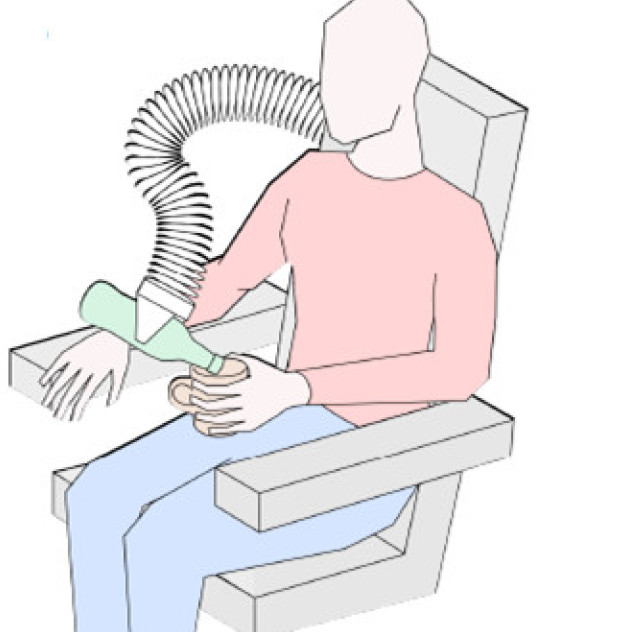Trimanual coordination assistance for hemiplegic stroke individuals (TRIMANUAL)

TRIMANUAL Project
Artificial supernumerary limbs (SL) that assist their user with minimal cognitive effort and can be seamlessly controlled both independently of and in combination with their natural limbs, are a popular vision of science fiction. The realisation of this vision could revolutionise industry and surgery, by allowing individuals to perform tasks that are otherwise impossible. The EU-funded Horizon 2020 Marie Sklodowska-Curie project “Trimanual coordination assistance for hemiplegic stroke individuals” looks to help realise this ambitious vision by developing new techniques/devices for controlling and providing feedback towards SLs as well as through studies on human subjects to better understand their overall capability.
This project conducted by Dr Jonathan Eden and Prof. Etienne Burdet within the Human Robotics Group, together with collaboratoring pioneers in the fields of biological signal processing, human-robot interaction and technological embodiment seeks to accomplish the following objectives:
- To develop a non-invasive human-machine interface enabling rich command and feedback behaviours for everyday SL operation.
- To determine a control framework capable of executing independent and trimanual operations
- To implement a SL enabling people with upper-limb disabilities to execute common ADLs
TRIMANUAL started in July 2019 and has a duration of 24 months.
Project collaborators include:
- Imperial College of Science, Technology and Medicine (United Kingdom)
- Università Campus Bio-Medico di Roma (Italy)
- Nanyang Technological University (Singapore)
Selected Publications
- J Eden, M Braecklein, J Ibanez Pereda, DY Barsakcioglu, G Di Pino, D Farina, E Burdet and C Mehring (2022). Principles of human movement augmentation and the challenges in making it a reality. Nature Communications 13(1): 1-13.
- Bräcklein, M., Ibáñez, J., Barsakcioglu, D. Y., Eden, J., Burdet, E., Mehring, C., & Farina, D. (2021). The control and training of single motor units in isometric tasks are constrained by a common synaptic input signal. bioRxiv.
- Ivanova, E., Eden, J., Zhu, S., Carboni, G., Yurkewich, A., & Burdet, E. (2021). Short time delay does not hinder haptic communication benefits. IEEE Transactions on Haptics.
- Noccaro, A., Eden, J., Di Pino, G., Formica, D., & Burdet, E. (2021). Human performance in three-hands tasks. Scientific Reports, 11(1), 1-8.
- Huang, Y., Eden, J., Cao, L., Burdet, E., & Phee, S. J. (2020). Tri-manipulation: An evaluation of human performance in 3-handed teleoperation. IEEE Transactions on Medical Robotics and Bionics, 2(4), 545-548.
- Li, Y., Eden, J., Carboni, G., & Burdet, E. (2020). Improving Tracking through Human-Robot Sensory Augmentation. IEEE Robotics and Automation Letters, 5(3), 4399-4406.


